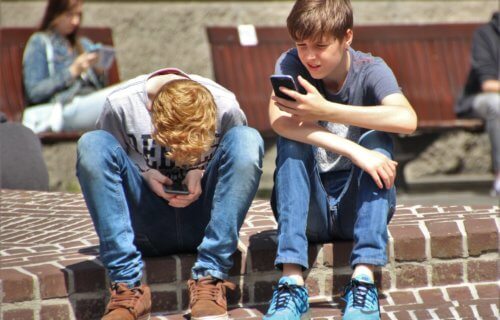ANKARA, Turkey — There’s a new health warning resulting from children engaging in too much screen time on their smartphones or tablets. Turkish researchers have discovered that blue light exposure, the kind emitted by digital devices, appears to have a connection to the onset of early puberty.
These findings pave the way for a better understanding of how modern habits, especially increased screen time, may affect the physiological development of children. The mysterious onset of early puberty in many children remains unexplained, though it sometimes ties back to genetic factors, brain abnormalities (like injuries or tumors), or issues with the thyroid, adrenal, or sex glands.
There has been a rise in early puberty cases among both boys and girls in recent years, a phenomenon particularly evident during the COVID-19 pandemic. Could our gadgets and increased screen time be playing a role?
To investigate this, scientists from the Ankara Bilkent City Hospital and Gazi University in Turkey observed 18 male rats, all 21 days-old. They were split into three groups and each group was exposed to varying durations of blue light: a normal light cycle, six hours, or a whopping 12 hours. Researchers found that male rats exposed to blue light started puberty notably earlier.
The more blue light researchers subjected the animals to, the sooner puberty began. These rats also displayed hindered sperm development and showed signs of testicular tissue damage.

These aren’t the first findings of this nature by this research group. They’ve previously observed a similar early onset of puberty in female rats exposed to blue light.
“For the first time, we found a direct relationship between blue light exposure and early puberty in male rats,” says lead researcher Dr. Aylin Kılınç Uğurlu, from Ankara Bikent City Hospital in a media release. “Our findings align with our previous work on female rats, which also showed similar effects, thereby providing a more comprehensive view of how blue light may influence puberty in both male and female rats.”
Before you consider tossing out your gadgets, however, Dr. Uğurlu urges caution.
“I want to emphasize that this is a rat study and direct results cannot be interpreted for humans. However, we provide an experimental foundation to further investigate the health consequences of ever-increasing screen time in modern society,” explains Dr. Uğurlu.
Researchers have their sights set on future studies. Their next step is investigating the long-term effects of pre-puberty blue light exposure on the reproductive health of adult rats.
“We aim to expose both male and female rats to blue light before puberty and understand its long-term effects on reproductive organ damage and fertility,” notes Dr. Uğurlu. “Ultimately, this research could lead to preventative measures and contribute to the ongoing discourse on how modern lifestyles affect physiological development and long-term health.”
The study is published in the journal Frontiers in Endocrinology.
You might also be interested in:
- 3 Ways Nutrition Can Protect Your Eyes From Blue Light
- Blue light is bad for your eyes — but great for your mangos!
- More girls are going through puberty early due to pandemic lifestyles, study says


Blue light. Yeah, no.
Thik hai
uhm, bad science.
limiting screen time is important, but just bad science.
Also, spoons made me fat.
Ridiculous. Correlation is not causation.
Every observation is correlation between observed action and observed result.
Too small of a study. What other factors were controlled for. Was it a randomized double blinded study, or did the scientists who determine the time of onset for puberty also know which group each animal came from. Can these results be applied to human beings? These results need to be replicated in an independent separate lab, using exactly the same methods, and results compared to this study before suggesting that it is applicable to real world scenario. You didn’t even bring up this scientific methodology to qualify the trumpted headline. Bias is not controlled for as far as the information presented suggests.
Blue light or not, screen time affects humans on fundamental levels and it’s being proven every day. The shutdowns really showed this. Harvard also wrote about it, as did Mayo, Cleveland clinic and other seemingly reputable groups. Developmental delays while physically maturing too fast.. great combo…NOT!
I am more concerned about what the devices do to our eyes. However, your comment, Stumbling Duck, makes a lot of sense.
Don’t anything from a company called 41 Pushups, LLC
Who thinks up this crap?
People who are brighter than you are.
I guess the voting age should be lowered as well as the age of concent.